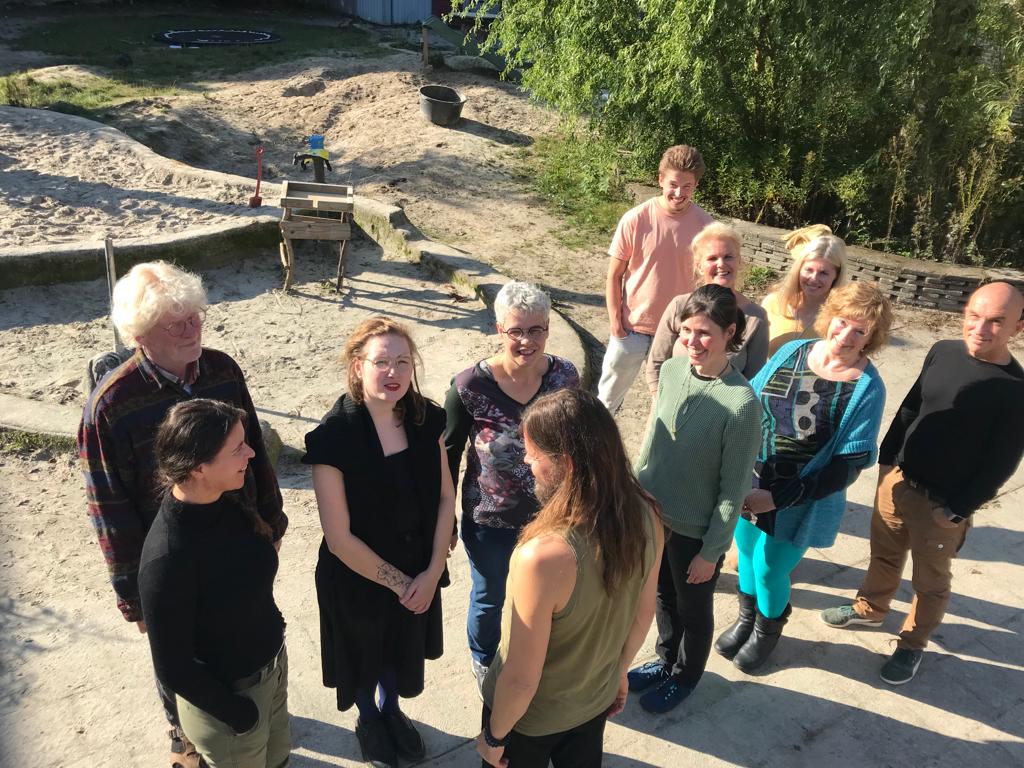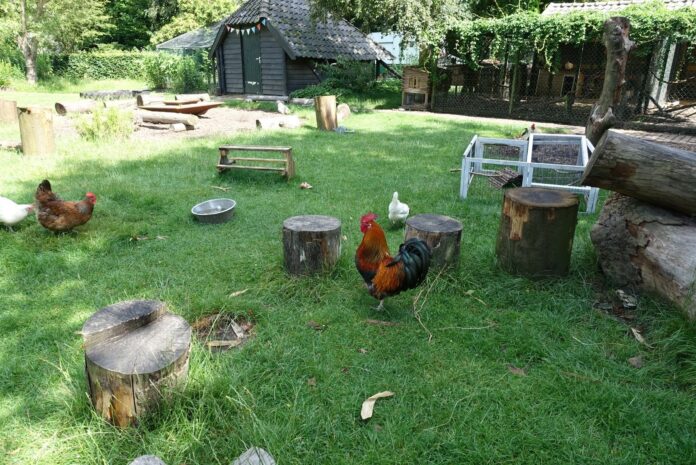In the municipality of Veldhoven, the construction of Eco-village ‘Klein Oers’ will probably start coming summer. It is the first eco-village in the Southeast Brabant and Eindhoven region. Forty fully sustainable homes will be built for young people, families with children and elderly.
Klein (small) Oers will be an eco-neighbourhood for all ages. There is room for young people, young families, single parents, couples without children, singles and the elderly. All ages will be represented. At the moment, the initiators are looking for buyers, especially young people, families and people over 70. ‘Friends’ of Klein Oers are also welcome. The village is looking for volunteers, donors and investors.
The project is part of the Bosackers Gehucht (hamlet) in the Zilverackers district that will be realised through collective private commissioning. Klein Oers is an initiative of the Association of ‘Ecodorp Klein Oers’ and ‘Woonstichting (housing foundation) ‘thuis’. Both the Municipality of Veldhoven and Woonstichting ‘thuis are very pleased. At a time when the housing market is under enormous pressure and no one can ignore sustainability anymore, a leading project such as Klein Oers is an enrichment within the municipality of Veldhoven and an example for many.
Pioneering
The houses of the project will be built of wood, straw and loam that comes as much as possible from the immediate vicinity. The sanitary management and the energy supply are particularly pioneering. The fourty homes will have more than excellent insulation, which means that heating is hardly necessary. What is still needed comes from the sun and from a heat buffer. Advice was given from Professor Ronald Rovers, who is affiliated with TU/e, among others, and is a visiting professor at the University of Hasselt. For sanitary management they contacted Eautarcie. This is an organization founded by Professor Joseph Országh, who died last year, who was affiliated with the University of Mons Hainaut. They provided advice on the selective treatment of ‘grey’ wastewater.
Following on from the circular agriculture pursued by outgoing minister Schouten, the contents of the toilets will soon no longer be seen as waste but as raw materials. Nowadays there is a sophisticated composting method for this, developed by the American Joseph Jenkins. A method that is not only sustainable, but also safe. The fact that this is applied to a project of forty homes is unique in the Netherlands.
Urgency
Before 2030, 1 million new homes must be built in the Netherlands because of the housing shortage. The rising costs caused by the scarcity of raw materials and the problems with nitrogen emissions show that we can no longer ignore sustainability. Initiatives such as Klein Oers are a ready-made answer to the great demand for affordable and sustainable homes that can be realised quickly.
Permaculture
The garden will be set up to grow your own food according to the principle of permaculture. This means that the community will be partly self-sufficient in this way. In addition to the forty homes, there will be a village hall that will house facilities such as washing machines and tools and above all will serve as a meeting place for residents and local residents.

Initiative
The Klein Oers initiative started in 2016. Initiator Cynthia van Schendel: “During all these years I have continued to believe in the feasibility of this project. My dream is now coming true.” Van Schendel wants to have more similar projects after Klein Oers. ”I want a more sustainable and social Netherlands and strive for more connection, between people and with nature.”
Klein Oers (in Dutch) is intended to be built on the Eindhovensebaan, close to the roundabout, the crematorium and the Zilverbaan. For the time being, the plan is to realize 16 owner-occupied homes (partly socially owned) and 24 social rental homes.
Translation and editing: Irene Martens











